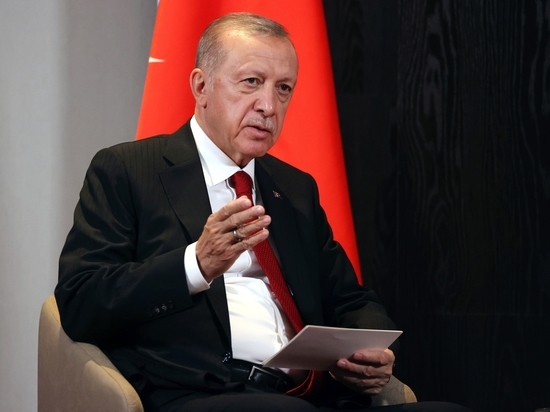Erdogan wanted to change Mir: Turkey is looking for an alternative to the Russian payment system
[ad_1]

Experts analyzed possible options
The Russian map “Mir” is looking for an alternative in Turkey. In mid-September, the US Treasury allowed the introduction of blocking sanctions for those foreign banks that continue to operate with the Russian payment system, which is under sanctions. The problem turned out to be especially sensitive for Turkey, which traditionally receives a huge number of Russian tourists, whose number goes into the millions. The seriousness of the situation is evidenced by the fact that on September 26, President Recep Tayyip Erdogan held a special meeting with ministers on problems with payments by Russians.
After the publication of a warning from the US Treasury, the largest banks in Turkey, Ishbank and Denizbank, announced the termination of servicing Mir cards. They argued this decision with anti-Russian sanctions, pointing out that they cannot continue to cooperate with the Russian Federation, because this will adversely affect foreign banks loyal to our country. Recall that in the first seven months of this year, almost 2.2 million Russians visited Turkish resorts. Our country ranked second after Germany in this indicator. The Turkish government is well aware of how important free payment is for so many vacationers, and therefore on September 26, Erdogan held the second meeting with ministers in a week, the purpose of which, according to the Sabah newspaper, is to take measures that will help Russians who have ended up in local resorts not to suffer from Western sanctions.
Note that Turkey is not the only country where they stopped accepting Mir cards over the past two weeks. Following it, some banks in Kazakhstan, Armenia and Vietnam refused to serve domestic “plastic”. Since September 23, Mir cards are no longer serviced in Uzbekistan, although cards of the UZCARD-Mir co-badged system continue to work in this country.
Experts have different views on the Turkish government’s ability to find a way out of the situation on its own or through partners in third countries. “The Chinese system can be immediately excluded: UnionPay has already limited work with Russian banks that are under sanctions,” says Vasily Solodkov, director of the HSE Banking Institute. – The decision in China was made due to fear of secondary sanctions. In addition, it turned out that foreign acquirers often do not make payments from any cards issued in Russia, including UnionPay, so the hope that cooperation with the Chinese will help in the issue of card payments tends to zero.”
You can consider other options – for example, come up with a new double-sided co-badged card, not the Russian “Mir”, but not completely Turkish either. The second option is to create a separate financial institution that will not interact with any other currencies except the Turkish lira. But the costs of creating this institution are clear, but the economic effect is unclear. “Therefore, let’s see what Erdogan’s financial team comes up with, but I don’t see any big prospects that payments will be possible with the Mir card or some new instrument in Turkey,” Solodkov said. Most likely, Russian tourists will have to carry cash with them on vacation, the expert concluded.
As Yashar Niyazbayev, editor-in-chief of MK in Turkey, told us, the ability of Russians to spend money outside of hotels is very valuable. It comes to the point that even the provision of several terminals to choose from is practiced. “If your Mir card is not served by one terminal, then I advise you to ask the seller for another one, most likely he will have it,” the expert recommended. He pointed out three possible ways to solve problems with Mir card payments. Perhaps the government will offer to use the Chinese analogue of SWIFT, the CIPS system, through which cards will be serviced. If it is not possible to reach an agreement with Chinese partners, then it will be possible to arrange service for Mir cards through the local, Turkish payment system. The second, according to the expert, is even more beneficial for Russia, because a large share of parallel imports to our country goes through Turkey. Well, the third option – you can try to develop a co-badged Mir card with one of the local state-owned banks, as it is now working in Uzbekistan. Of course, the technical implementation of any of these solutions will take time. According to Yashar Niyazbaev, the Turkish authorities will try to solve the problem by the beginning of the next tourist season. At best, the project should be launched by January 2023, when many tourists from Russia traditionally come to Turkey for the New Year holidays. And for sure, the authorities will try to come up with something by April 2023, when the main tourist season begins.
[ad_2]
Source link






